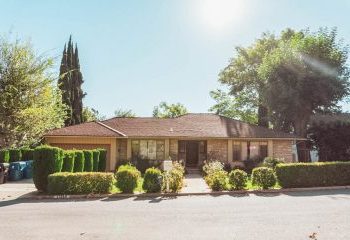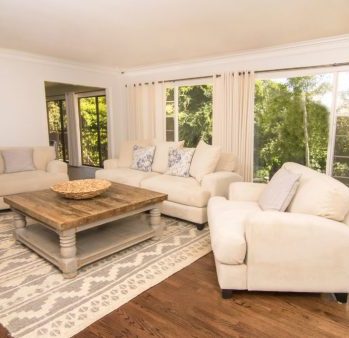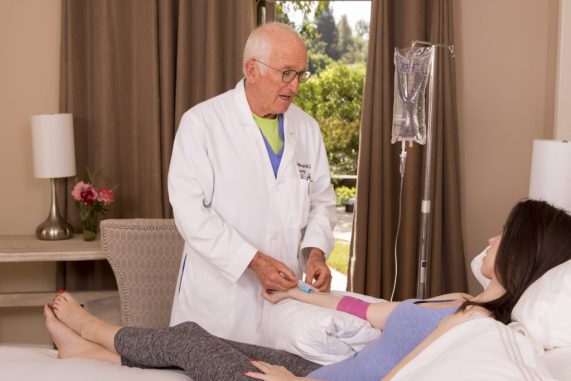Novo Detox is a treatment center with a detox and inpatient rehab facility that is fully accredited by The Joint Commission, the California Department of Health Care Services, and the Substance Abuse and Mental Health Services Administration (SAMHSA).
We are the best detox and rehab center for addiction for San Francisco, California residents because we have a full staff of caring and empathetic, dedicated experts available to our patients 24 hours a day, 365 days a year. Our drug and alcohol detox and rehabilitation programs have a high recovery rating, with our patients avoiding the ping-pong effect.
Our Gallery
Why patients choose detox & rehab programs at Novo?
Focus on safety & comfort
24/7 supervised detox
Top Rated facility
Effective treatment
Healthy meals
Quick admissions
Evidence-based Therapy
Great locations Nationwide
- Rehab Near Me: Best Detox & Rehab Center For Addiction in San Francisco
- Highest Rated Alcohol Detox Program
- Drug Detox Program
- Top Alcohol Rehab in San Francisco
- Drug Rehab in San Francisco
- How Much Does Rehab Cost in San Francisco?
- How Long Is Detox?
- How Long Is Rehab?
- 30 Day Short Term Rehab
- Long-Term Rehab
- Additional Therapies & Addiction Treatments Available
- Does My Insurance Have Coverage For Rehab?
- MAT
- Cognitive Behavioral Therapy
- Dialectical Behavioral Therapy (DBT)
- Rational Emotive Behavioral Therapy (REBT)
- Dual Diagnosis Treatment
- EMDR
- Relapse Prevention
- Life Skills Training
- Vocational Training
- Group Therapy
- Experiential Therapy
- One-on-One Therapy
- Family Therapy
- Trauma Informed Therapy
- Physical Fitness
- Off-Site Activities
- 12-Step Rehab in San Francisco
- Anxiety Disorder
- Bipolar Disorder
- Borderline Personality Disorder
- Codependency
- Depression
- Impulse Control Disorder
- Post-Traumatic Stress Disorder
- Why Choose Novo Detox?
- Recovery Friendly Things to Do in San Francisco
Rehab Near Me: Best Detox & Rehab Center For Addiction in San Francisco
Novo Detox is an inpatient rehab center for substance abuse, providing drug and alcohol addiction treatment through integrated treatment plans tailored to suit each client’s needs. Our caring, empathetic, and non-judgmental staff, doctors, nurses, therapists, and holistic practitioners will get to know you as a person, learn your recovery goals, and work with you to create the right type of program for your individual needs.
Novo Detox is one of the best rehab centers in the San Francisco area because, along with being fully accredited by the Joint Commission, the California Department of Health Care Services, and the Substance Abuse and Mental Health Services Administration (SAMHSA), we have a high recovery rating. Through comprehensive inpatient programming, medication-assisted treatment, personalized therapy, life skills programs, and other treatments, we will help you stop using drugs and alcohol and move into long-term recovery, avoiding the ping-pong effect through relapse prevention programs and connections to outpatient rehabilitation centers and peer support groups.

Highest Rated Alcohol Detox Program
Alcohol detox at Novo Detox begins with a full screening for mental illness, physical health issues, an in-depth interview with you, and bloodwork to help us determine the right treatment methods for your unique needs. In our detox programs, we provide:
- 24-hour medical care, day and night
- Prescription medications to keep you comfortable and safe
- Healthy food
- Plenty of rest
- A comfortable and supportive environment
- Contact with loved ones for support
- Therapy
- Holistic treatments
Drug Detox Program
At Novo Detox, we focus on treating drug withdrawal symptoms as quickly, safely, and effectively as possible while preserving your dignity and treating you with the utmost respect. Through our cutting-edge DNA testing, and treatment from board-certified doctors, nurses, psychologists, and other care providers, you will have a safe, integrated treatment program that will help you eliminate the toxins from your body.
You may be provided with prescription medications that will ease cravings, prevent uncomfortable or painful withdrawal symptoms, and help you rest, you may have psychiatric care to help with symptoms like anxiety and depression, and you may also have medical interventions to help with issues including high blood pressure, extreme dehydration, seizures, etc. Holistic treatments will be provided for your comfort as well. We will work hard to ensure you overcome your chemical dependency as smoothly and safely as possible so you can move on to your next level of care.
Top Alcohol Rehab in San Francisco
Novo Detox is the top rehab for residents of San Francisco because we not only provide cutting-edge technology integrated with evidence-based behavioral treatments, psychotherapy, and holistic care, but we also provide a comfortable luxurious environment in which our patients can rest, relax, and heal the body, mind, and spirit.
When you come to our residential inpatient center to treat drug or alcohol addiction, you will live in the heart of the city, with access to amenities like:
- A private chef and fully stocked snack bar
- Swimming pool
- Outdoor lounge area
- Workout and fitness classes
- Yoga
- Meditation
- Sound healing
- Massage therapy
- Housekeeping services
- TV and video games
- Board games and books
- Community lounge areas
- Cell phone access after a blackout period
Drug Rehab in San Francisco
When you come to Novo Detox for drug rehab, you will live inside the facility and have fully structured days that include one-on-one meetings with your primary therapist at least twice a week. You will meet with a case management team once a week for life skills, and vocational skills, and help with other practical issues like FMLA paperwork or legal issues, so you can leave rehab with a plan to move forward in life on a positive trajectory.
At Novo, we believe that, for many people, family is a huge motivator. If you wish, and if it is appropriate to your treatment, your therapist can keep your loved ones involved in your treatment by keeping them up to date on your progress through weekly contact and by arranging family therapy sessions.
Your days will also include plenty of group therapy, with 40 to 47 hours of groups per week. Group therapy options at Novo include:
- Mindfulness
- Seeking safety
- Goal setting and achieving
- Anger management
- Healing through creativity
- Health awareness
- Distress tolerance skills
- Emotional self-regulation
- Cognitive restructuring
- Interpersonal relationships
Other therapy and care we provide include:
- Cognitive behavioral therapy and dialectical behavioral therapy
- Interpersonal psychotherapy
- Relapse prevention programming
- Dual diagnosis programs for those with co-occurring disorders
- Nutritional health and wellness
- Life skills and social skills
- Individual counseling sessions
- 12-step fellowships (Alcoholics Anonymous, etc.)
- Holistic treatments like yoga, massage, and meditation
- Aftercare planning
How Much Does Rehab Cost in San Francisco?
The cost of rehab for San Francisco, California residents depends on several factors, like:
- How long do you stay in detox
- How long do you stay in residential rehab
- Whether you continue with outpatient rehab after inpatient rehab is over
- Which medications are part of your program
- Which therapies are you part of
- Whether the rehab is private or public
If you believe you have a substance use disorder and want to know more about the costs associated with detox and rehab at Novo Detox, please feel free to call us any time. We are happy to help you figure out insurance coverage and may be able to provide a quote so you can get the help you need right away.
How Long Is Detox?
Their unique clinical needs determine each person’s detox, so it is impossible to give an exact timeline. On average, a person will spend three to fourteen days in detox before moving into residential inpatient rehab, with alcohol detox usually lasting 5 to 7 days, opioid detox at 7 to 10 days, and benzodiazepine detox usually somewhere between 10 to 12 days.
How Long Is Rehab?
Your individual treatment needs determine the length of time spent in inpatient rehab at the Novo Detox treatment facility. Each person is unique in their physical and psychological issues and treatments. Depending on which substances you have been using and for how long, you may stay in rehab at the Novo wellness center for 30, 60, or 90 days in total. Our medical director will work closely with you to ensure you get the appropriate treatment for your unique situation, addressing the issues that brought you to alcohol and drug rehab without giving you medications or treatments you do not need.
30 Day Short Term Rehab
30 days is the standard amount of time most people spend in inpatient rehab. At Novo Detox, we believe that a full 30 days inside our luxurious treatment center will help those with a milder addiction address their clinical, behavioral, and mental health needs while providing the support and therapy needed to start down their individual road to recovery. The first month after detoxing is crucial in determining how you will live as a sober person, so beginning your recovery in a program that teaches healthy schedules and habits while reprogramming your brain and changing your overall outlook on life to a productive, positive and healthy mindset will start you out on the right foot. You will learn relapse prevention skills, recovery tools, and stress reduction strategies that will significantly reduce your risk of relapsing.
Long-Term Rehab
Spending a long time in rehab can make all the difference for people with a history of relapsing or who may be resistant to treatment. Those with a dual diagnosis and those who are in medication-assisted treatment (MAT) program may also benefit from the extra time inside our treatment center’s supportive sober atmosphere, especially if they are taking new prescription medications or if they require medical or psychiatric oversight, or if they are worried about serious withdrawal symptoms returning after detox. The longer anybody spends inside the structured and scheduled environment in rehab, the lower their chance of relapsing will be.
Additional Therapies & Addiction Treatments Available
Addiction recovery is about more than just the body’s chemical dependence on drugs and alcohol. You are a complex person with emotional, spiritual, and mental health needs that go far beyond medications and education about drug use. At Novo Detox, we also provide treatments for a whole-patient approach to healing that will help you relax, recover, and regain a sense of self. These include holistic treatments like:
- Saltwater therapy
- Acupuncture
- Herbology
- Reflexology
- Detox massages
- Qigong
- Tai Chi
- Yoga
- Meditation
Does My Insurance Have Coverage For Rehab?
Legally, health insurance has to cover at least some of your substance abuse treatment because mental health and addiction treatment are considered essential health care. Each provider will have its own regulations about which treatments, therapies, rehab centers, and medications they will cover, so it is a good idea to check with your provider if you are unsure. At Novo Detox, we are a private rehab that works with PPO and HMO insurance, and we also take cash payments. We do not accept MediCal and MedicAid. We do accept:
- Anthem Blue Cross Blue Shield
- Aetna
- Cigna
- Health Net
- Health Partners
- First Choice Health
- ValueOptions
MAT
At Novo Detox, we can help San Francisco’s drug- and alcohol-addicted population overcomes even the most severe addictions to serious substances. In our medication-assisted treatment (MAT) program, we provide a whole-patient approach to treatment while you are in our treatment center that combines:
- Professional, efficient, evidence-based medical care
- Therapy
- FDA-approved prescription medications
- Holistic treatments
- Organic and nutritious food
- A comfortable, safe place to rest
Some substances like opioid drugs and painkillers can cause serious withdrawal symptoms that can last longer than a few weeks or come back suddenly, weeks, or months after rehab is complete. Some drugs like benzodiazepines can cause dangerous side effects like seizures if you quit them too quickly, and some substances like alcohol can cause strong cravings and temptations to “just have one” after you leave the rehab center.
A MAT program is a doctor-run prescription medication program that can begin directly after your initial detox phase is complete, with prescribed medications on a strict schedule that will help eliminate withdrawal symptoms, cravings, and other distressing effects caused by detoxing. Over time, you will slowly taper off the medications, giving your body plenty of time to adjust and allowing you to live your life without suffering as you work through your alcohol or drug abuse issues during and after drug and alcohol rehab in San Francisco. Each person’s MAT program is tailored to their unique chemical, behavioral, and lifestyle needs to best suit their individual recovery program.
Cognitive Behavioral Therapy
Cognitive Behavioral Therapy (CBT) is the most well-known behavioral health treatment for treating addiction and/or other mental health issues. CBT helps patients modify their behaviors and thought patterns while treating underlying emotional health disorders, learning the reasons behind self-destructive thoughts and actions, and practicing alternate healthier coping mechanisms.
Dialectical Behavioral Therapy (DBT)
Dialectical Behavioral Therapy (DBT) is often an important part of substance abuse treatment because it helps patients discover the social and emotional reasons behind their drug and alcohol use and other self-destructive behaviors. It also teaches how to tolerate uncomfortable emotions and distress through mindfulness, as well as interpersonal effectiveness and emotional regulation, and replacing negative behaviors and reactions with positive ones, all of which are important aspects of behavioral addiction treatments.
Rational Emotive Behavioral Therapy (REBT)
Rational Emotive Behavioral Therapy (REBT) is commonly used in addiction recovery programs because it works with patients to challenge their own thoughts and responses to emotions and difficult situations, providing healthy coping mechanisms and addressing underlying issues. REBT uses reason and analysis to help patients focus on their own perspective on things, with the reasoning that there is no such thing as a “good” or a “bad” situation. It only matters how you look at it and what you choose to do about it. This line of thinking encourages ownership and accountability for their actions in all aspects of life.
Dual Diagnosis Treatment
A person who has a mental health disorder with addiction as a co-occurring disorder will often be provided with what is known as dual diagnosis treatment. A dual diagnosis treatment program uses integrated therapy, education, medication, counseling, and holistic techniques to treat both issues at the same time, with caregivers working together to ensure both issues are addressed at all levels of care, treating the underlying issues and behaviors, and providing coping strategies to stop the cycle of substance abuse while getting their mental health under control. Common mental health issues that are treated in addiction treatment centers include:
- Bipolar disorder
- Depression
- Anxiety disorder
- Eating disorder
- Obsessive-compulsive disorder
- Impulse control disorder
- Borderline personality disorder
- Post-traumatic stress disorder
EMDR
EMDR stands for “Eye Movement Desensitization and Reprocessing.” This type of psychotherapy uses eye movements or certain tones or tapping patterns to help patients access and process traumatic memories and other adverse life experiences and resolve the troubling emotions connected to them. The sounds or eye movements that occur in EMDR treatment programs create what is known as “dual awareness,” creating new associations with the memory’s information that help develop cognitive insights and eliminate emotional distress. This allows the brain to reprocess the memory and file it away where it belongs, so it is no longer psychologically disruptive.
Relapse Prevention
Relapse prevention programs are integral to our residential inpatient treatment plan because going to rehab is only the first step to life-long recovery. Once you step outside our doors, you will face the real world and all its temptations and triggers. With an effective relapse prevention strategy in place, as long as you follow the steps you have laid out for yourself, you will be able to achieve life-long sobriety. Each person’s plan will look different but may include:
- Knowing the signs of relapse in yourself
- Having people you can talk to in your life when times are difficult (a sponsor or family member)
- Knowing which places or people to avoid (bars, drug dealers, etc.)
- Having consistent meetings like 12-step or SMART recovery meetings you attend regularly
- Keeping regular therapy appointments and doctor’s appointments
- Staying in a sober living home that offers random drug tests
- Knowing when it is time to go back to rehab for additional treatment
Life Skills Training
Drugs and alcohol take a big toll on a person, and not just in a physical way. When you spend your days controlled by substances, you begin to miss out on normal life, including learning simple skills that other people may consider basic or obvious. At the Novo treatment facility, we can show you the things you have missed out on so you are ready to return to the world as an independent person. This may include housekeeping or hygiene, effective communication, or the important life skill of balancing a budget. We will work with you at Novo to build the future you want for yourself after rehab so you can become the sober person you want to be.
Vocational Training
Financial independence is a factor in many people’s lives that help them remain sober after rehab because they no longer need to rely on anybody else and are freer to make their own decisions. Working brings in money and provides opportunities to meet new people, create a healthy normal schedule, and give structure and purpose to each day.
Finding employment after rehab can be difficult because, for many, their substance use disorder took over their entire life, killing ambition in the working world and creating barriers to finding a job. At Novo Detox, our rehabilitation center aims to help you succeed after rehab. We can provide life-skill services to help you create a resume, search for work in your area, and improve your interviewing skills. We will help you learn to live healthier lives, creating a better future for yourself.
Group Therapy
Group therapy may be the most common type of therapy used in alcohol and drug treatment programs because it is effective on many levels. There are several types of group therapy, but all involve a group of patients and one or more therapists, with a discussion or lecture taking place on a specific topic. Group therapy helps patients to:
- Feel less alone
- Gain new social and communication skills
- Brainstorm solutions to problems
- Learn new information or strategies from counselors
- Learn from their peers
- Be of service to others
Experiential Therapy
Experiential therapy is a type of therapy that gets a person out of their own way by providing interesting, fun, or challenging experiences like creating art, taking care of an animal, going on a nature walk, etc. Using the activity or experience as a distraction, the therapist will guide the discussion through traumatic incidents or other issues that are related to disturbing emotions. The combination of the two experiences at one time can help patients speak freely, achieve new insights, and reframe the way they feel about the event.
One-on-One Therapy
One-on-one therapy is an individual type of therapy that involves one patient and one therapist, psychologist, psychiatrist, or counselor and is often used as part of an integrated addiction treatment plan. It is a private conversation that can be used to work through life’s issues, tackle challenges you cannot get through on your own, talk about anything interfering with your happiness, and deal with things that make you feel upset or overwhelmed. Discussing issues that are hard to face alone, your therapist can provide insight, strategies, and coping methods, helping you change your behaviors and ways of thinking to reduce stress and improve your overall quality of life.
Family Therapy
Family therapy may involve two family members, the entire family system, or a group of people who consider themselves family. It is usually a short-term process used to solve a specific problem or work through an issue together. A therapist will guide discussions, helping members work through a difficult subject and communicate clearly with one another. Family therapy can help with:
- Grief, guilt, or shame
- Conflict
- Trust issues
- Understanding one another
- Codependency
- Enablement
- Healing old wounds
- Improving your relationships
Trauma Informed Therapy
Trauma-informed therapy is a treatment practice that doctors, nurses, therapists, and other people involved in care utilize to ensure their patients feel safe, not only physically but also emotionally during treatment. When it comes to PTSD and addiction, it is important to recognize that many people in a treatment facility have had traumatic experiences, including drug use, medical problems, death, issues with the law or authority figures, and traumatic encounters with health care providers. Helping patients using trauma-informed practices means:
- Listening and watching the patient’s body language for signs of dissociation or trauma response
- Answering all questions honestly, without making anybody feel stupid for asking them
- Obtaining consent before administering treatment or touching a patient
- Working together with the patient, collaborating on their own care, giving them agency
Physical Fitness
Exercise programs are imperative to most people’s alcohol and drug rehab programs. Your body needs to move and stretch to stay healthy, and physical activity can promote a strong mind-body connection, allowing you to appreciate all your body can do for you. When paired with continued therapy and support groups, a regular exercise schedule can be all you need for lasting recovery after completing your inpatient rehab program. A regular exercise routine is beneficial to those in recovery because it can:
- Add structure to your week
- Allow you to meet new people who care about health and fitness
- Improve your self-esteem
- Help you grow stronger
- Relieve stress
- Distract from cravings
- Give you a sober-friendly activity you can do any time
Off-Site Activities
One of the main principles of most rehabilitation centers is to help patients avoid drugs and alcohol, but it is not prison, and you are not trapped inside the center. You will live inside the center, attend treatments, and many times, the center will organize sober-safe outings for you and your peers to attend. These depend on your location and what there is to do around the center. San Francisco drug rehab community is lucky, as the city is filled with fun and sober-friendly things to do. The weather is mild, nature is nearby, and the city is bustling with activity. Your rehab center will be able to arrange activities that can help remind you of ways to have fun without drugs and alcohol as you get out for a change of scenery during inpatient rehab.
12-Step Rehab in San Francisco
In 12-step programs like Alcoholics Anonymous or Narcotics Anonymous, unlike most addiction treatment centers, you will be encouraged to acknowledge your lack of power over your drug and alcohol addiction and compulsive actions, putting yourself into the hands of a higher power to find new ways to regain control over your life despite this lack of control. 12-step programs in San Francisco will help you take stock of your life, make amends to those you have hurt, and grow a lasting and supportive community of sober friends and sponsors who will be there at meetings and beyond to help you through rough times.
Anxiety Disorder
Everybody worries and experiences short bouts of anxiety in their lives. An anxiety disorder is when these feelings go beyond normal worrying. People with clinical anxiety may experience intrusive thoughts, fear, distress, panic, and feelings of “fight or flight” without any reason to feel that way. There are many forms of clinical anxiety, like:
- Generalized anxiety disorder
- Panic disorder
- Social anxiety disorder
- Phobia-related disorders
- Obsessive-compulsive disorder
- Post-traumatic stress disorder
Common symptoms of anxiety include:
- Excessive worrying
- Anticipating the worst
- Being “on alert”
- Rapid heart rate
- Feeling worried, dread, and irritability
- Trouble concentrating
- Hyperventilation
- Insomnia
- Shaking
- Nausea
- Sweating
- Dizziness
Bipolar Disorder
Bipolar disorder is a mental health issue that causes a person to experience extreme shifts in energy levels, mood, and sleep patterns. There are several types of bipolar disorder, each with its own specific set of symptoms, but the commonality is that somebody with bipolar disorder will shift between low mood and low energy in a depressive episode into high energy and mood in a manic episode. A person’s episodes are distinct from their baseline moods, which may differ from person to person.
Symptoms of a manic episode include:
- Having high energy levels
- Increased activity
- Feeling jumpy, irritable, and easily agitated
- Talking quickly
- Racing thoughts
- Insomnia
- Making grandiose plans
- Feeling invincible
- Risky or dangerous behavior
- Euphoria
Symptoms of a depressive episode include:
- Feeling sad
- Feeling hopeless
- Anxiety
- Restlessness
- Difficulty concentrating
- Forgetfulness
- Fatigue
- Changes in sleeping patterns
- Speaking slowly
- Suicidal thoughts
Borderline Personality Disorder
Borderline personality disorder is a mental illness that affects how a person feels about themselves and others, impacting how they act and feel. This disorder may cause a person to fear abandonment, act impulsively and self-destructively, and develop unstable relationships. Other symptoms of borderline personality disorder are:
- Shifting self-identity
- Extreme mood swings
- Feeling empty
- Explosive anger
- Paranoia
- Dissociation
- Self-harm
Codependency
A codependent relationship involves two people with dysfunctional personalities. One person will begin to rely on the other to meet all of their needs, emotionally and in the case of addiction, providing them with alibies, excuses, and substances, and allowing them to get away with shirking responsibilities and enabling their substance abuse and irresponsible behaviors. Signs of a codependent relationship include:
- Lack of boundaries
- Poor communication
- Making excuses for each other’s behavior
- Control issues
- Low self-esteem
- Obsessions
- People-pleasing and caretaking behaviors
- Lack of self-care
- Denial
- Stress
- Painful emotions
Depression
Clinical depression is not as simple as “feeling sad.” It is a complex mood disorder that makes it difficult for a person to function in their normal daily life. It is characterized by emotional lows, prolonged feelings of hopelessness, and loss of interest in activities. If these symptoms continue for a period of two weeks or longer, it is considered a serious depressive episode. Other common symptoms of clinical depression are:
- Feeling helpless
- Unexplained aches and pains
- Low energy
- Change in appetite
- Change in sleep patterns
- Difficulty concentrating
- Self-loathing
- Suicidal thoughts
- Angry outbursts
Impulse Control Disorder
Impulse control disorder is the name for several conditions in which a person cannot help themselves when it comes to performing an action or behavior and literally cannot resist the impulse to do or feel something. They may act aggressively, lie, steal, or have difficulty concentrating, and become socially withdrawn, developing anxiety and low self-esteem due to their condition. Some common impulse control disorders are:
- Kleptomania (uncontrollably stealing)
- Intermittent explosive disorder (impulsive angry outbursts)
- Pyromania (setting fires)
- Oppositional defiant disorder (challenging authority figures)
- Pathological gambling
- Trichotillomania (pulling out hair)
- Compulsive shopping
Post-Traumatic Stress Disorder
Post-traumatic stress disorder is a mental health issue that occurs when a person has experienced or witnessed a traumatic event and is characterized by experiencing stress and fear, even when they are not in danger. PTSD symptoms fall into four main categories:
- Intrusive thoughts/flashbacks
- Reactivity and arousal
- Avoidance
- Negative thoughts and mood
Why Choose Novo Detox?
At Novo Detox, we provide top-tier care, with concierge-level service and state-of-the-art medical services during detox and inpatient treatment. You will benefit from cutting-edge science and holistic therapies, getting the best from both schools of thought. Our professional expertise will make your treatment efficient and effective as we work with you to ensure you feel safe and maintain your dignity and sense of self throughout treatment.
Substance abuse is not something you should have to try and handle alone. If you are struggling with drug or alcohol use, you can contact our center in California at any time, day or night. We are available 24 hours a day because we know that a quick admission into residential treatment can make the difference between life and death for some people.
We also offer inpatient detox programs and inpatient treatment that is customized to your unique bio-genetic metabolic profile. When you first enter your program with us, we do blood work alongside your mental health and physical assessment, so we can tailor your medications, treatments, and therapies to best suit your needs.
We are part of a network of rehab centers, and once you have completed your residential treatment plan with us, we can connect you to further levels of care in outpatient programs throughout the San Francisco Bay area. Depending on where you go and what your specific needs are after inpatient treatment, these may include customized outpatient treatment, intensive outpatient programming, partial hospitalization programs, or online therapy.
Along with in-person detox and residential rehab, Novo provides telehealth services for California residents, including group therapy sessions, weekly one-on-one therapy, case management, and weekly appointments with psychiatrists.
The option to continue into outpatient rehab is a good idea for patients with a dual diagnosis and dealing with a co-occurring disorder like anxiety, bipolar disorders, PTSD, borderline personality disorder, depression, impulse control disorder, or codependency. It is also a good idea to continue therapy, doctor’s visits, and other care if you are in a medication-assisted treatment (MAT) program and are still on a medication schedule to help you taper off and stay off of drugs like heroin, benzodiazepines, or alcohol. Outpatient programs provide the long-term support you need as you transition back to your everyday life.
Please call our admissions advisers today for answers to your questions about substance abuse treatment, types of payment accepted, insurance verification, or any other questions you may have regarding our treatment center, amenities, and programs. We are standing by now, and we can help you.
Recovery Friendly Things to Do in San Francisco
San Francisco, California is full of recovery-friendly activities and things to do, including:
Visit the Haight-Ashbury Neighbourhood
710 Ashbury St, San Francisco, CA 94117
This area has maintained the same eclectic and creative vibe it was famous for in the 1960s during the hippie movement. You can find a wide variety of incredible thrift and vintage shops, see the Grateful Dead House, browse record shops and bookstores, and do some people-watching in this loud and colorful area of the city.
Go to the Exploratorium at Pier 15
Pier 15 Embarcadero at, Green St, San Francisco, CA 94111
Part of the San Francisco Science Museum, the Exploratorium claims to have “broken the science museum mold” by creating a library of experiments. Learn about natural phenomena, technology, science, and the world around you through exhibits that combine art and science that are visually interesting and intellectually stimulating.
Have High Tea at the Palace Hotel
2 New Montgomery St, San Francisco, CA 94105
Get fancy and indulge in a formal ritual with finger sandwiches, desserts, and tea in the glass atrium of the Grand Court in the Palace Hotel. Tea times are Saturdays from 1 pm to 2:30 pm and on certain holidays and special occasions. Make a reservation to book your spot in the elegant Garden Court and treat yourself to an afternoon of luxury.










